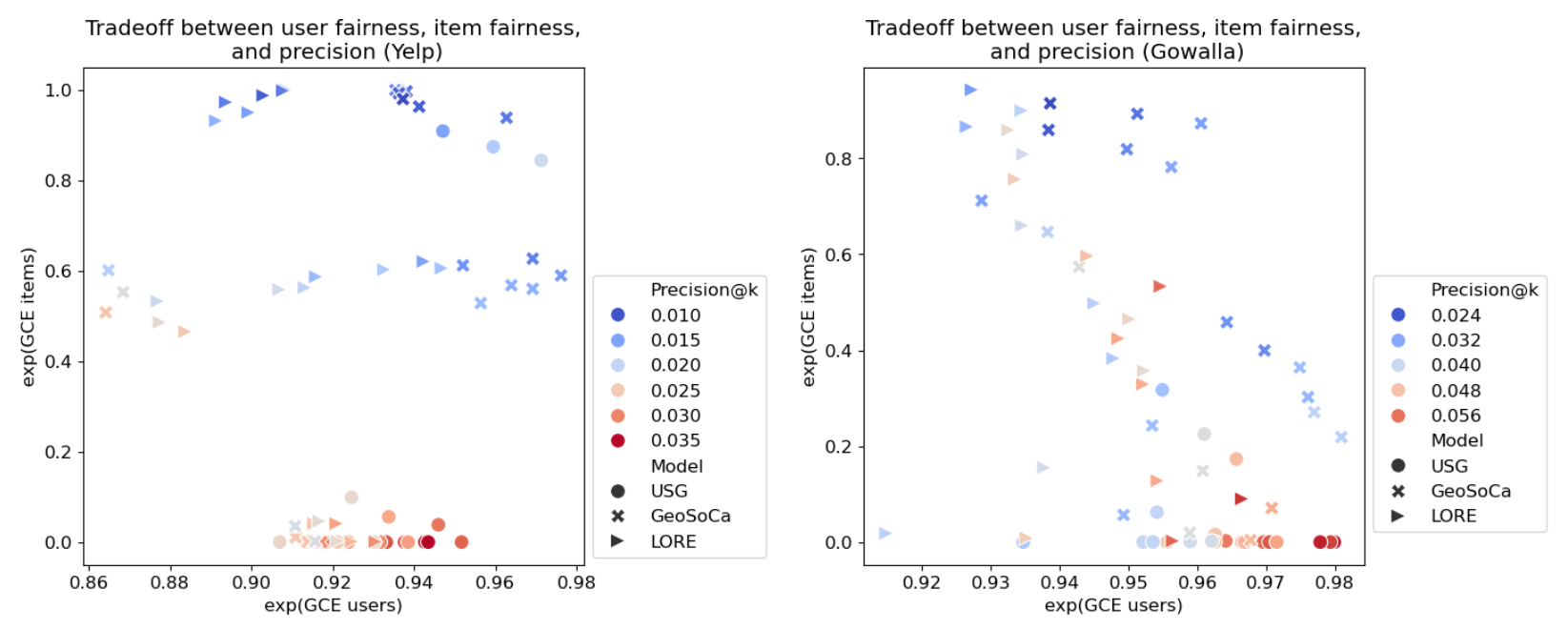CAPRI-FAIR: Context-Aware Interpretable Point-of-Interest Recommendation Framework with Fairness Considerations
CAPRI-FAIR is a fork of CAPRI, a specialized framework implemented in Python for evaluating and benchmarking several state-of-the-art POI recommendation models. The framework includes fairness considerations and is equipped with state-of-the-art models, algorithms, well-known datasets for POI recommendations, and multi-dimensional evaluation criteria (accuracy, beyond-accuracy and user-item fairness). It also supports reproducibility of results using various adjustable configurations for comparative experiments.
The figure below shows the general framework for running this module.
Just clone this repository and install the prerequisites below, or in the requirements.txt.
- Python >= 3.4
- NumPy >= 1.19
- Pandas >= 0.25.2
- SciPy >= 1.6
- PyInquirer >= 1.0.3
- Typing_extensions >= 3.7.4.3
The app can be run in the CLI using the main_cli.py module.
$ python main_cli.py --help
usage: main_cli.py [-h] [--reranker [RERANKER]] [--fairness [FAIRNESS]] [--provider_alpha [PROVIDER_ALPHA]] [--exposure_model [EXPOSURE_MODEL]] [--consumer_beta [CONSUMER_BETA]] [--evaluation [EVALUATION ...]] [--k [K]] model dataset fusion
positional arguments:
model Recommender model to use (GeoSoCa,LORE,USG)
dataset Dataset to test on (Gowalla,Yelp,Foursquare)
fusion Fusion method for the operands (Product,Sum,WeightedSum)
options:
-h, --help show this help message and exit
--reranker [RERANKER]
Post-filter reranking method to use to use (TopK,Random,ItemExposure)
--fairness [FAIRNESS]
Fairness context to consider (None,Provider,Consumer,Both)
--provider_alpha [PROVIDER_ALPHA]
Coefficient of provider fairness factor
--exposure_model [EXPOSURE_MODEL]
Coefficient of provider fairness factor
--consumer_beta [CONSUMER_BETA]
Coefficient of consumer fairness factor
--evaluation [EVALUATION ...]
Metrics to evaluate (Precision,Recall,mAP,NDCG)
--k [K] Number of recommended POIs to evaluate per userHere is a sample command for running the GeoSoCa model on the Gowalla dataset, using a Linear provider fairness model and a provider fairness weight of 0.75. The Precision, Recall, mAP, and NDCG metrics are recorded, with the recommendation size k = 10.
$ python main_cli.py GeoSoCa Gowalla Sum --fairness Provider --provider_alpha 0.75 --exposure_model Linear --k 10 --evaluation Precision Recall mAP NDCGThis generates both evaluation files and the actual recommendation lists for each user.
# The evaluation file containing the selected evaluation metrics - It shows that the user selected GeoSoCa model on Gowalla dataset with Product fusion type, applied on 5628 users where the top-10 results are selected for evaluation and the length of the recommendation lists are 15
Eval_GeoSoCa_Gowalla_Product_5628user_top10_limit15.csv
# The txt file containing the evaluation lists with the configurations described above
Rec_GeoSoCa_Gowalla_Product_5628user_top10_limit15.txt
